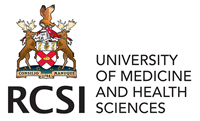About the Project
The aim of the project is to investigate the interaction between environmental exposures and genomic variation in tumour development.
The project builds on the Principal Investigator’s expertise in Bioinformatics, Cancer gene prioritization and Next Generation Sequencing Data analysis [1-7] and the student will be based in the Genomic Oncology Research Group at the Royal College of Surgeons in Ireland under the supervision of Dr. Simon Furney.
The recent completion of the large-scale The Cancer Genome Atlas (TCGA) and the Pan-Cancer Analysis of Whole Genomes (PCAWG) projects has signalled “the end of the beginning of Cancer Genomics” [8, 9]. The genomic characterization of >11,000 tumors from 33 cancer types by the TCGA has resulted in the richest cancer genomics dataset generated to date [8]. The PCAWG project has analysed whole genome sequences of >2,600 cancer patients [9]. This project will develop novel computational approaches to analyse these data.
Person Specification
The successful candidate should be able to demonstrate the following:
Essential:
• An Honours Bachelor degree (First Class OR very good Upper Second Class degree) in Genomics, Genetics or Bioinformatics or similar subject
• A passion for biology and genomics
• Strong interest in cancer research
• Expertise in / aptitude for programming and scripting
• Good communication skills
• Strong organisational and administrative skills
• Ability to work on one’s own initiative as well as in a multidisciplinary, team environment
Desirable:
• M.Sc. in Bioinformatics or Computational Biology
• An aptitude for mathematics / statistics
References
References
1. Furney SJ, Calvo B, Larranaga P, Lozano JA, Lopez-Bigas N: Prioritization of candidate cancer genes--an aid to oncogenomic studies. Nucleic Acids Res 2008, 36(18):e115.
2. Gundem G, Perez-Llamas C, Jene-Sanz A, Kedzierska A, Islam A, Deu-Pons J, Furney SJ, Lopez-Bigas N: IntOGen: integration and data mining of multidimensional oncogenomic data. Nat Methods 2010, 7(2):92-93.
3. Turajlic S, Furney SJ, Lambros MB, Mitsopoulos C, Kozarewa I, Geyer FC, Mackay A, Hakas J, Zvelebil M, Lord CJ et al: Whole genome sequencing of matched primary and metastatic acral melanomas. Genome Res 2012, 22(2):196-207.
4. Furney SJ, Pedersen M, Gentien D, Dumont AG, Rapinat A, Desjardins L, Turajlic S, Piperno-Neumann S, de la Grange P, Roman-Roman S et al: SF3B1 mutations are associated with alternative splicing in uveal melanoma. Cancer Discov 2013, 3(10):1122-1129.
5. Turajlic S, Furney SJ, Stamp G, Rana S, Ricken G, Oduko Y, Saturno G, Springer C, Hayes A, Gore M et al: Whole-genome sequencing reveals complex mechanisms of intrinsic resistance to BRAF inhibition. Ann Oncol 2014, 25(5):959-967.
6. Viros A, Sanchez-Laorden B, Pedersen M, Furney SJ, Rae J, Hogan K, Ejiama S, Girotti MR, Cook M, Dhomen N et al: Ultraviolet radiation accelerates BRAF-driven melanomagenesis by targeting TP53. Nature 2014, 511(7510):478-482.
7. Piraino SW and Furney SJ. Identification of coding and non-coding mutational hotspots in cancer genomes. BMC Genomics, 2017, 5;18(1):17.
8. Ding, L., et al., Perspective on Oncogenic Processes at the End of the Beginning of Cancer Genomics. Cell, 2018. 173(2): p. 305-320 e10.
9. Campbell, P.J., et al., Pan-cancer analysis of whole genomes. bioRxiv, 2017.

 Continue with Facebook
Continue with Facebook

